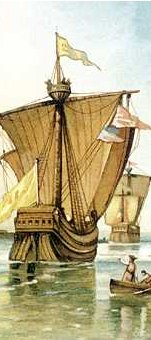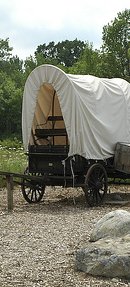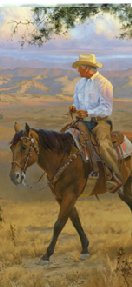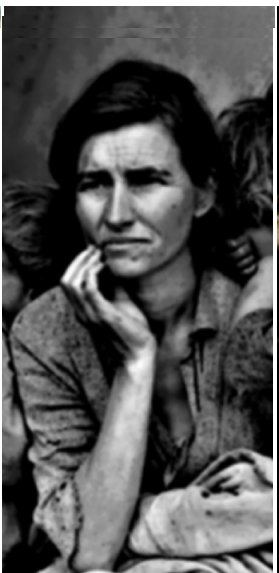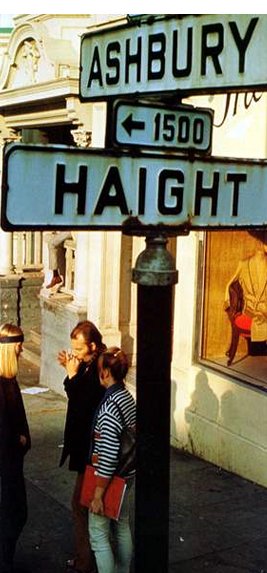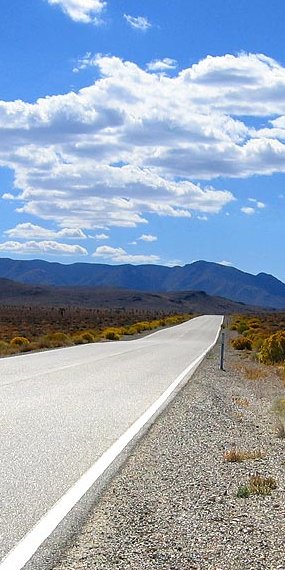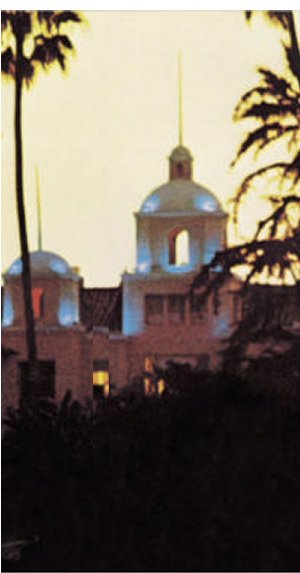Citrus Farms of California Davoud Tu
Douglas Cazaux
Sackman is Assistant Professor of History at the University
of Puget Sound. Sackman was awarded the Martin Ridge Award for his insight on
Historical Society of Southern California. All of Sackman¡¦s life he took fruits and vegetables for
granted. When he matured he then
realized that plants were symbols of health, wealth and sunshine. Sackman
learned the essence of nature and its landscape from his parents.
The foundation for Douglas Cazaux Sackman¡¦s ideals are
¡§miners make a mining landscape; farmers an agrarian one; and so on, up to the
city builders.¡¨1 He believes in order to
grow; things must work their way up gradually. California
was not merely a state that lay on the west coast but a state of vast amount of
opportunity. It started with California¡¦s
agricultural exports being spread throughout the country and as a result, big
agricultural companies were formed.
To this day California has
the most potential of all states in the United
States because of superior size,
agriculture, and also technology. In Orange
Empire: California
and the Fruits of Eden,
Sackman¡¦s documents explains the establishment of
agriculture in Southern California.
The fastest growing city in California
is Los Angeles. Sackman
believes that ¡§growth and Los Angeles
seemed near synonyms.¡¨2 Los
Angeles has changed immensely since the days of
agriculture. In the 1890s the
population of Los Angeles was about
5,700 and in the 1930s the population quickly grew to about 1,200,000. Los
Angeles grew from a Spanish colony to one of the
leading cities of industry in the world.
Sackman, then states that the city of Los
Angeles strikes fear into those who hear its name
because it is now polluted with smog and can easily be seen from afar. The landscape has been completely
altered since the late 1800s after oil was discovered in 1892; Los
Angeles then became the leading distributor of it by
the 20th century. California
was an ideal landscape from the perspective of Manifest Destiny because of
having good weather, agricultural soil, and vast amounts of jobs blessed
it. California
was on the path of being discovered and finally was as of 1848. California
became an American Frontier because of the Gold Rush, a common place where many
people went because of vast amount of opportunities. The opportunities left behind by the
Gold Rush only meant settlement in California. In the 1870s California
was reconstructed into a garden with the orange as its exemplary fruit. Sackman then explains about ¡§The Finished Products of Their
Environment¡¨ in Chapter 5. The
leading agricultural companies wanted to keep a reputable border with Mexico
in order for them to employ workers on a non-risk basis, allowing them to hire
all the workers they wanted and not be obligated in carrying for them. This also allowed them to hire all the
workers they wanted with very little pay. Although the job didn¡¦t require
the workers in endure strenuous labor, it didn¡¦t want to hurt the citizens who
have civil rights in the United States.
The Commission of Agriculture believed that the key to creating harmonious
labor relations lay in managing the bodies and spatial experiences of
workers. This meant that the
workers needed to learn how to work together and their experience will get
better from learning from one another. He states in his book states that,
¡§ultimately the commission hoped to lead California
away from its reliance on the migratory labor single men and toward a system
that would allow families to thrive among the agricultural working class.¡¨3 Agricultural employers ignored the advice
given by the Commission and therefore paid the price, the citrus industry
listened to the message of the home ecology and that is why they were rich and
successful. Many other states
greatly envied California and all
the potential that it held. Organization is what helps unify all the workers
and the key to success.
Annually there is a convention that
California Fruit Growers attend, which is a place where they can meet and share
their new ideals and methods for growing. At one of the California Fruit
Growers Convention it was said, ¡§the old Californio
was introduced to the growers as the man who had originally ¡¥laid out this
country.¡¦¡¨ General Mariano Guadalupe Vallejo was the most famous of all Californios and he told his audience that ¡¥no better
climate is found anywhere.¡¦¡¨4 During
this time Old California was arranged for the growers to just do their duty and
make plants grow. Sackman believed California
already had the weather for agriculture; all it needed were the right tools and
people for cultivation. The status
quo of the growers of California
was to grow fruits, vegetables, and plants. Sackman
said that California¡¦s biggest
dream was to see a place with perfect plants and people. Although they wanted California
to become the most efficient and biggest grower of plants in the U.S.,
they felt as if bigger was not always better. Herbert John Webber, a plant
physiologist, was interested in improving plants as well as being interested in
genetics. The opponent to his idea
was Muller, a geneticist, believed that biological evolution is the constant of
mutation and is the central problem.
Sackman had a counterpart to his ideas and was
impelled by the ideas of the great Upton Sinclair. Sinclair loved nature and not so
fond of humans but admitted ¡§man is a part of nature and a product of nature,¡¨
he felt ¡§ the modern civilized man had revised and
even supplanted the processes of nature. In Sackman¡¦s
eyes ¡§poverty was simply an artificial creation, the result of dividing up
nature¡¦s bounty into the private property out of which economic empires are
created.¡¨ What Sackman
was trying to declare is poverty is just a mindset and it¡¦s only mental and
poverty and rich people are divided up because private property is a creation
of the governments doing.
As a result of the vast amount of
exotic oranges, industries such as Sunkist soared. The Green Revolution was a result of big
companies becoming leading industries in California
and the book confirmed, ¡§The Green Revolution was a kind of growling frenzy in
which millions of barrels of oil-in the form of insecticides, fertilizers, and
gasoline-powered farm machinery-were used to create tremendous quantities of
food.¡¨5 During this period, agriculturalists
were just obsessed with money and did not care how their food was fabricated as
long as it got to their destination.
The Green Revolution disturbed rural cultures, amplified reliance on
machinery, and destroyed environments.
Because of the way food was being engineered, insects started swarming
crops and as a result growers started to fumigate which was a sure sign that
they were still in control of their crops. It was then Sunkist¡¦s time to reign
as the leading orange industry after the riots of the Green Revolution. Sunkist
needed the sun according to Sackman, ¡§in its quest to
replace oranges with nature, Sunkist¡¦s trump card was of course the sun.¡¨6 Without it, its company was done for and its
message to send to the public eye is that oranges should be eaten
everyday. In the year 1928 Sunkist
established its presence by being the second leading drink behind Coca-Cola,
and launched its first program commercial, which pulled in 15 million viewers
watching. Sunkist¡¦s advertisement
had something to do with offering a fantasy of landscape of Citrus and California
for people in living places far from the Fabricated Eden and for that reason
all the more attracted to it. Sunkist believed that labor supply and housing
conditions were fundamentally linked.
Sackman
was not only interested in agriculture but he was also interested in
health. He explained how natural
fruits and vitamins could improve someone¡¦s health, by asserting, ¡§Vitamin C is
the anti-infection vitamin that is so important to normal growth and the
development of sturdy bones and sound teeth¡K.C is needed each day.¡¨7
Vitamin C is the essence of all oranges; Sackman
believes that oranges are important to daily life. Vitamin C is the vitamin that helps
fight the sickness when a person is ill and is essential for daily life. In the 19th century it was
believed that oranges could cure anything (because of the Vitamin C) even the
fearful malaria. Non-residential Californians misunderstood the connection
between oranges and California. They believed that all California
was concerned about was growing oranges.
The non-Californians envied the residents of California
because of their economic growth that they had recently been through. Sackman also
tells of the cheap labor source. Most
observers of California
agriculture agree that ¡§cheap labor¡¨ provided by migrant groups was the fuel
powering agricultural growth that California
needed. Growers were losing $1.5
million annually because of the construction of the railroads. By August 2, 1913 workers were fed up with their working
conditions, they eventually made a list of demands and went on strike. Growers thought they were making a
change in their working environment making an unbiased work place.
Sackman¡¦s
main purpose for writing Orange Empire: California and the Fruits of Eden
was to show how California
growers established California
agriculture and the prosperity of the land. Sackman
was environmentally friendly and cared much for agriculture, he knew that the
way of life for California was
agriculture and one of the only way he could explain
this exceeding way of life is telling how much the orange industry grew and
citrus farms. To Sackman California
agriculture was the only thing that mattered but health as well. He explained,
¡§under the doctrines of the ¡¥newer nutrition,¡¦ good
health was not just a matter of abstaining from bad food, but the result of
taking in the right vitamins and minerals.¡¨8 To have good health it is not such an
easy job. A person must work to eat
right and know what is good to eat and what is bad to eat. Along with that a person should take in
the right amount of vitamins and minerals daily. He analyzes the growth of a
great state and proves its potential with his ongoing facts and
statistics. 1848 when Gold was
discovered, it triggered thousands of people to come and migrate to California. Because of people migrating to California,
they established themselves with the environment and it became a permanent
housing situation. California
was then noticed as a state of great potential. To Sackman
an ideal family is a male head hard worker, the house and children are neat and
the yard is full of vegetables and fruits.
Douglas Cazaux
Sackman provided information in his book mainly to
support his beliefs in California
agriculture. The thesis Sackman provided us with throughout his novel was
valid. Sackman
gets inside the skin of an orange and analyzes the aspects of California
agriculture. He said, ¡§Gardening became a source of livelihood and pride. Southern Californians
grew fruit trees and they grew ornamental trees. Their identity, and economy, became
fixed to plants.¡¨9 Growing plants of the
Orange Empire became their identity.
He believes that agriculture in Southern California
wouldn¡¦t be so successful without the two essential components, the weather and
cultivation. He considers California
agriculture as a gift from God and its diversity made it useful for all types
of economical use.
Steven Stoll a professor of history
at Yale stated that, ¡§historians have known about the
orange business for a long time, none ever assembled a more subtle, expansive,
and intricate narrative than Douglas Sackman's Orange
Empire.¡¨10 Stoll understood that Sackman gathered bits and ideas of information about
oranges and California agriculture and put it all in one book. Stoll explain his critiques with the
utmost respect for Sackman. Paul Rhode from the Department of
economics and alumni to the University
of North Carolina declared that, ¡§but the heart of the work is the analysis
of citrus marketing.¡¨11 He understood that it wasn¡¦t easy
for Sackman to gather all the bits of knowledge for
his book. Overall, the book showed an extensive use of research and
confirmed his thorough knowledge of the subject.
Sackman
is a legitimate source to pursue if a person wants to follow up information
regarding California agriculture.
He did believe that California
was greatly affected by eastern United States
although most of its agricultural aiding came from Central American. He
believed so because if it weren¡¦t for the Gold Rush it would have taken America
a long to realize the infinite amounts of opportunities that lay in California. He tells us a story of himself white
editing his book one day while receiving a crate of oranges in the mail. He then tells that the oranges reminded himself about agriculture and the citrus farms and tells us
the establishment of Southern California. The book goes just beyond agriculture it
tells us how the state of California
matured into a grand one. It
reaches out to all people interested in not just agriculture but a way of life.
Oranges were the gold of California
and a product the nation needed to unify itself. This quote explains his view on Mother
Nature, ¡§Diego Rivera, a Mexican muralists, painted
what another friend called ¡¥the heroic figure of California,
the mother, the giver.¡¦¡¨12 Mother
Nature was the pride and joy of California
and Sackman saw her as ¡§the giver¡¨ to a rich
economy. The book is clearly a
wonderful choice for a history of California
agriculture with its vast amount knowledge of the subject. Sackman does a
terrific job incorporating his thoughts and includes various amounts of details
in his book.
How was California¡¦s
agriculture so prosperous? California
has superior weather to many other states and countries as well. However not all credit can go to weather
because a lot of it had to do with the growers and agriculturalists. The migrants that come from other
countries had experience growing plants especially the Mexicans. California
didn¡¦t want establish a definite border with the Mexicans because they wanted a
cheap source for labor. It was
certain that California was
destined to be great according to this quote, ¡§California
boosters had been adding a new episode to the story of Manifest Destiny. It was about the role of workers. The California Farmer was sure that ¡¥California
was destined to become a large grower.¡¦¡¨13
California was first an
established colony by the Spaniards.
They set the standard for agriculture during this time period and new
how it worked. They had various
theories for cultivation
How did the agriculture affect California
in the long run? California
was successful because of all the opportunities that were created. California
is the most populated state in the nation and will continue to prosper. California
also flourished because great companies led it and it helped connect the United
States through the use of agriculture. Sackman stated that at the conventions, ¡§the very purpose
of the convention was for fruit growers to share information on how to improve
fruit growing.¡¨14 If gold wasn¡¦t found in San
Francisco in 1848 it would not have put California
on the map as it did. As a result
of California being noticed as a
state this created opportunities all around the state. This allowed California
to grow and become successful. Some were pulled into the success of agriculture
and were pulled into the successful way of life.
Douglas
Cazaux Sackman, the author
of Orange Empire: California and the Fruits of Eden, incorporates his
thoughts on California
agriculture in the late 19th century to 20th
century. His book includes great
examples of agriculture using citrus farms as a reference. Sackman writes
about creating a perfect society first off he talks about Fabricating Eden,
Working in the Garden, and finally Reclaiming Eden. Theses three topics are the support for
the rest of his book and are the key essentials for making a Utopian Society. Sackman felt,
¡§the landscape of Southern California became deeply
infused with market forces and bound up in a web of economic, political, and
ecological exchanges that spanned the globe.¡¨15 This
quote reveals that Sackman believed that California
had just the right amount of a combination of economic, political, and
ecological differences to set up this lasting foundation. Growers in California
put their heart and soul into creating California¡¦s
prosperous agriculture. They
deserve the utmost respect to their contributions and their sacrifices.
1. Sackman, Douglas. Orange Empire California and the Fruits of Eden. Berkeley: University
of California Press, 2005. 25
2. Sackman, 24
3. Sackman, 170
4. Sackman, 56
5. Sackman, 81
6. Sackman, 88
7. Sackman, 110
8. Sackman, 167
9. Sackman, 23
10. Stoll, Steven. "Orange Empire: California
and the Fruits of Eden (Book
Review)." Environmental History Jan 2006 2 Jun 2008
<http://findarticles.com/p/articles/mi_qa3854/is_200601/ai_n17177350>.
11. Rhode, Paul. "Rhode on Sackman,
Orange Empire: California and the
Fruits of Eden and Karlinsky, California
Dreaming: Ideology, Society, and Technology in the Citrus Industry of Palestine,
1890-1939." EH.NET 14 Nov 2006 2 Jun 2008
<http://eh.net/pipermail/eh.net-review/2006-November/000362.html>.
12. Sackman, 3
13. Sackman, 143
14. Sackman, 54
15. Sackman, 24


